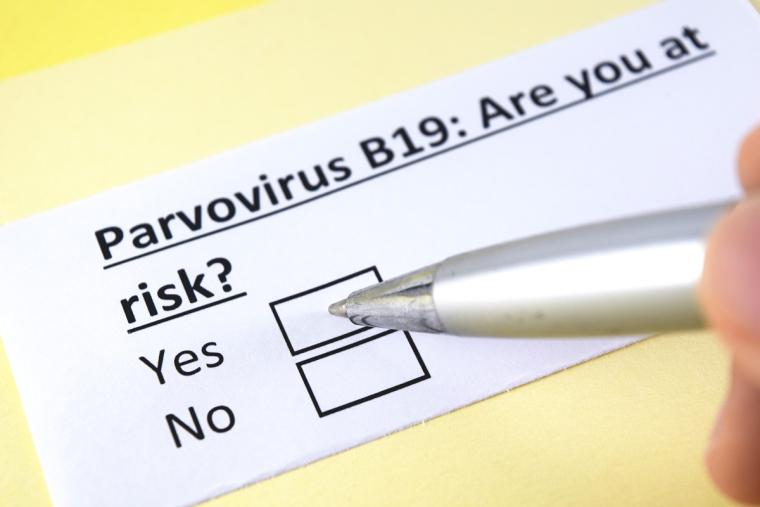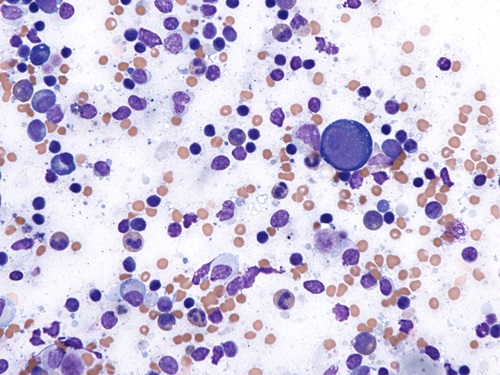
As fall rolls around, school sports ramp up and with them comes the inevitable debate over whether youth athletes should receive flu shots, as well as other vaccines.
This year, the wrinkle in the fabric of life is the emergence of a particularly virulent strain of the respiratory Parvovirus B19, which can be life-threatening for certain groups. According to the CDC (which issued an alert in August), parvo, as it is known for short, is on the increase.
In fact, notes, the CDC, “the proportion of people with IgM antibodies (an indicator of recent infection) increased among all ages from less than 3 percent during 2022–2024, to 10 percent in June 2024; the greatest increase was observed among children aged 5 to 9 years, from 15 percent during 2022–2024 to 40 percent in June 2024.”
Those are scary statistics. And while in many cases, infection symptoms do not seem particularly worrisome (flu-like symptoms, rash, and joint pain are the most common), it can be a serious health threat for high-risk groups, including women who are pregnant (hear that, soccer moms?), those have a weakened immune system, or those have certain blood disorders (such as sickle cell disease).
That means that in the youth sports setting (or even in the adult and senior sports setting), parvo is nothing to fool around with.
Oh, and for those who were wondering, yes, there is a strain of parvovirus that is found in pets as well; however, the human parvovirus is completely different from the parvovirus seen in dogs and cats, meaning people can't get the infection from a pet or vice versa.
The Mayo Clinic notes, “Human parvovirus infection is most common among elementary school-age children during outbreaks in the winter and spring months, but anyone can become ill with it anytime of the year. It spreads from person to person, just like a cold, often through breathing, coughing and saliva, so it can spread through close contact between people and hand-to-hand contact.”
 To combat the spread of parvo, as well as all respiratory-borne diseases, the CDC is recommending specific vaccines, including the following:
To combat the spread of parvo, as well as all respiratory-borne diseases, the CDC is recommending specific vaccines, including the following:
- For most people, a current flu and COVID-19 vaccine.
- Everyone ages 75 and older should get a respiratory syncytial virus (RSV) vaccine. RSV is highly contagious and easily transmissible.
- CDC also recommends adults ages 60-74 who are at increased risk of severe RSV disease get an RSV vaccine.
- To prevent severe RSV disease in infants, CDC recommends either the pregnant mother gets an RSV vaccine, or the infant gets an immunization with an RSV monoclonal antibody. Most infants will not need both.
Vaccines are always a hot topic in the youth sports space. Event owners, who want to make sure tournaments go forward, often encourage parents to take advantage of the availability of vaccines, including those against COVID-19, RSV and the flu. Sometimes, parents cooperate; other times, they look for ways to get around them, citing religious or other objections. While there have been worries about a link between vaccination and autism, multiple studies have disproven any connection.
And as of November 2023, the advice about vaccines still does not seem to be hitting home; according to the University of Minnesota’s Center for Infectious Disease Research & Policy (CIDRAP), a Texas A&M University survey of U.S. parents found that only 41 percent already had or would vaccinate their children against COVID-19, 63 percent against influenza, and 71 against RSV that fall and winter.
While there is no perfect scenario when it comes to mandating or recommending vaccines, tournament directors should recall that large gatherings have previously been linked to everything from mumps to the flu – and everything in between, including measles.
The most common reasons for vaccine hesitancy were doubts about safety and the need for vaccination and a lack of information.
"The large number of unvaccinated children will likely lead to large numbers of excessive disease in children," the survey’s authors wrote.

